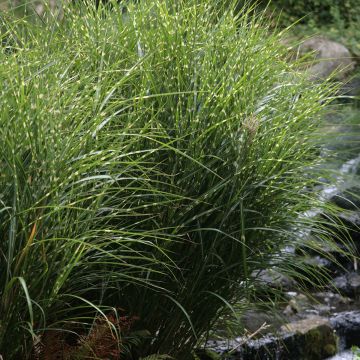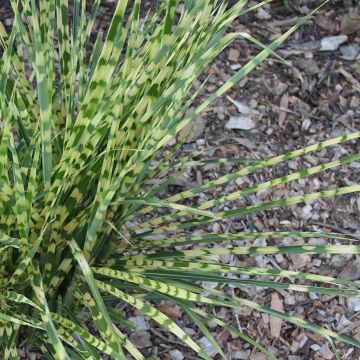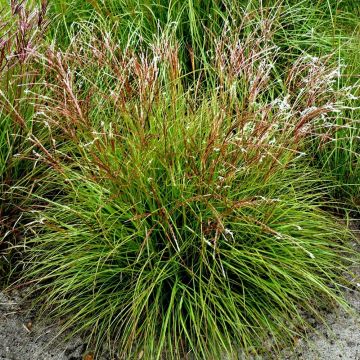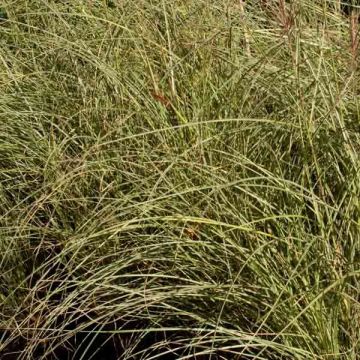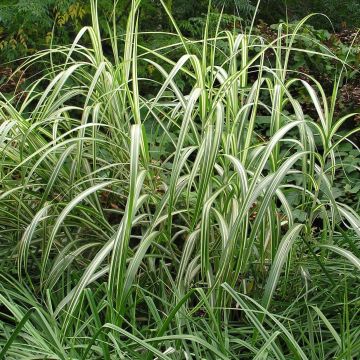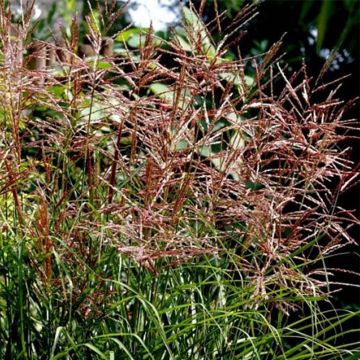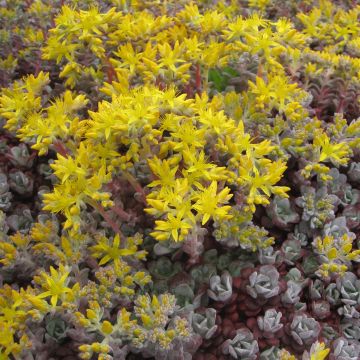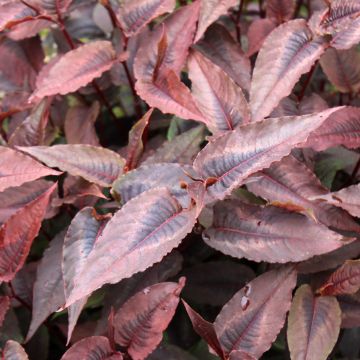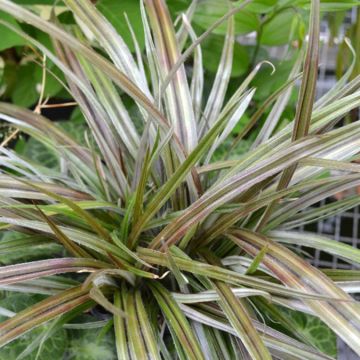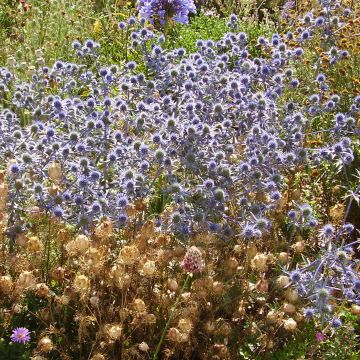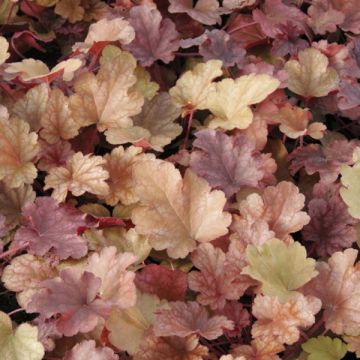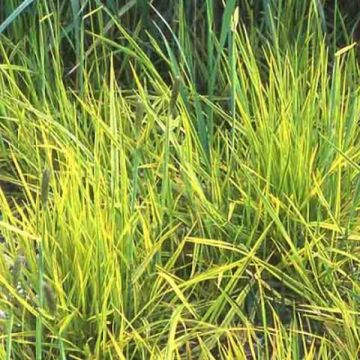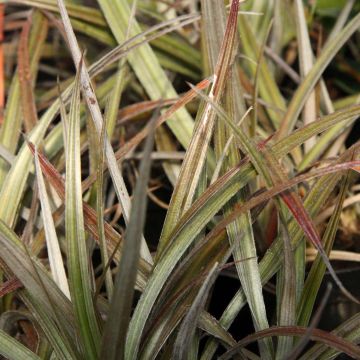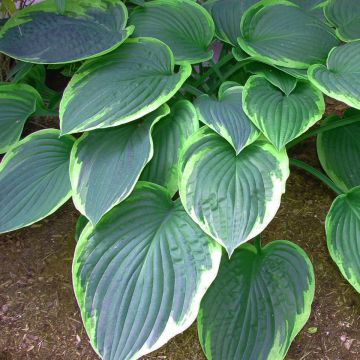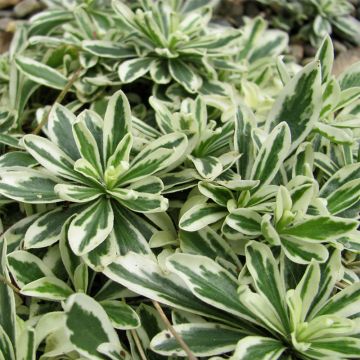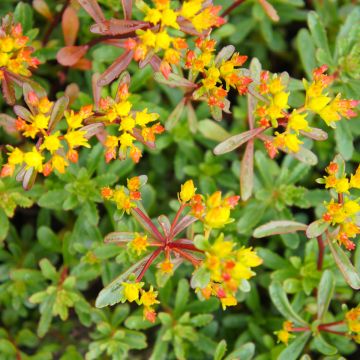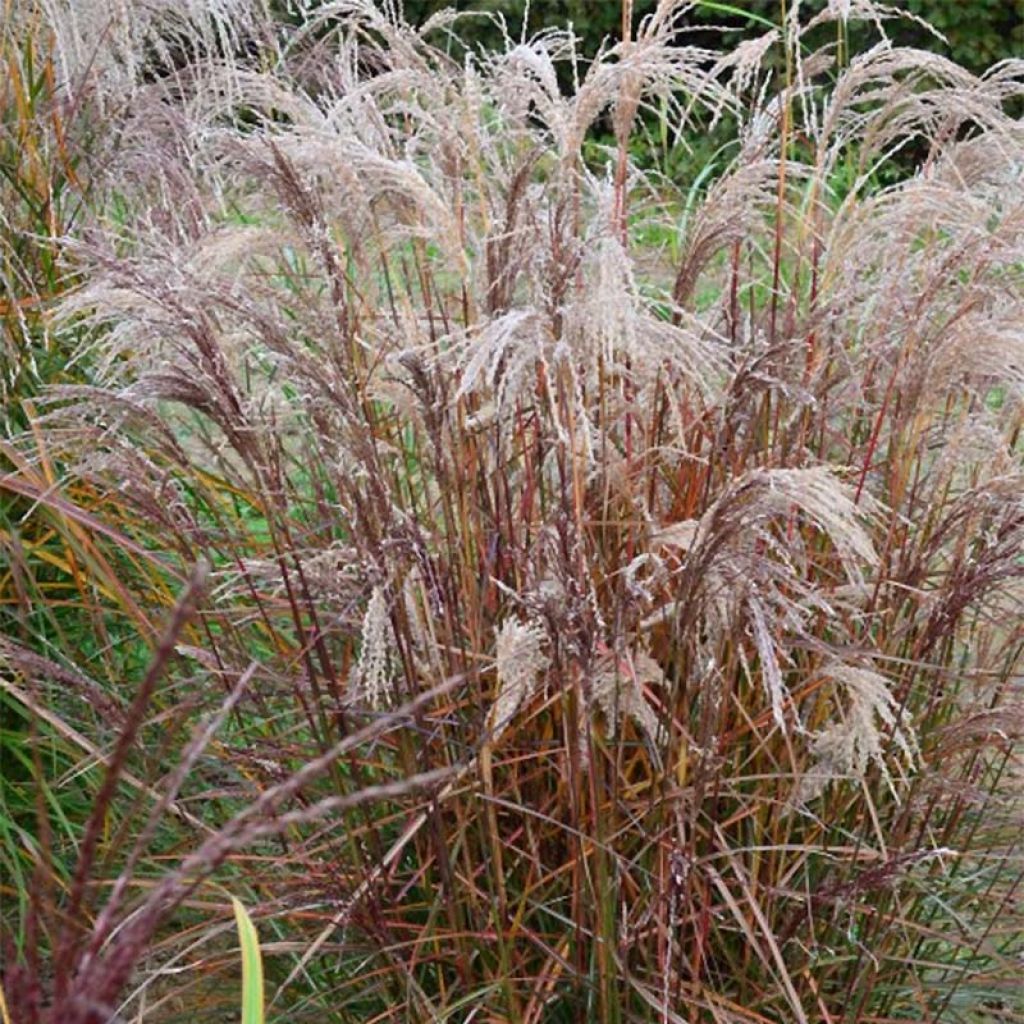

Miscanthus sinensis Aperitiv - Silvergrass
Miscanthus sinensis Aperitiv - Silvergrass
Miscanthus sinensis Aperitiv (Aperitif)
Eulalia, Porcupine Grass, Chinese silver Grass, Maiden Grass, Zebra Grass, Susuki Grass
Unlike the other received miscanthus, this one seems to be off to a good start. To be continued.
Jean-Marie, 25/07/2020
This item cannot be shipped to the selected country
Delivery charge from €5.90
Delivery charge from €5.90
More information
Delivery charge from €5.90
Delivery charge from €5.90
More information
Schedule delivery date,
and select date in basket
This plant carries a 12 months recovery warranty
More information
We guarantee the quality of our plants for a full growing cycle, and will replace at our expense any plant that fails to recover under normal climatic and planting conditions.
From €5.90 for pickup delivery and €6.90 for home delivery
Express home delivery from €8.90.
From €5.90 for pickup delivery and €6.90 for home delivery
Express home delivery from €8.90.
Does this plant fit my garden?
Set up your Plantfit profile →
Description
Miscanthus sinensis 'Aperitif' is a charming Chinese reed that is not very tall, with a beautifully coloured flowering. It is ideal for small gardens and container cultivation. This new variety, which does not exceed 1m (3ft) in height, forms a clump of long green leaves that come alive with an abundance of beautiful plume-like inflorescences in August-September, changing from pink tinged with red to silver-pink in autumn. They remain decorative until December. Such a presence deserves to be highlighted in borders or in large containers, for its beautiful structure, its beautiful autumn colours, and its graceful habit.
The 'Aperitif' eulalia belongs to the Poaceae family. It is a recent variety derived from Miscanthus sinensis, native to extreme eastern Asia and Oceania. This perennial grass with short rhizomes develops rapidly into a non-invasive, tufted clump. The fountain-like habit is both erect and slightly trailing. It does not exceed 1 to 1.2m (3 to 4ft) in height when flowering (70 to 80cm (28 to 32in) for the foliage), with a relative spread of 50cm (20in). The leaves are thin and ribbon-like, very long, quite flexible, and medium green in colour until summer. They gradually turn burgundy-red in late summer and autumn. The purplish floral stems emerge just above the foliage in late summer, in the form of silky digitate spikes 15 to 20cm (6 to 8in) long, with a colour ranging from old pink to dark red reflections. When withering, they take on a more silvery hue. The plumes consist of tiny flowers that close up a little after opening, and then reopen when mature. They then take on a fluffier appearance.
Among ornamental grasses, miscanthus is probably one of the most beautiful and least invasive. It has been the subject of numerous selections and is the origin of many cultivars. They all share the same upright, regular and arched tufted silhouette, with long leaves with a clear median stripe, which turn a straw-yellow colour in winter. 'Aperitif' is a wonderful perennial that grows on its own once well established, perfect for contemplative or beginner gardeners. King of patios and balconies, it has a place in a modern garden with clean lines, a Japanese garden, or in large ensembles where it will lighten flowering. In winter, it lights up the garden with its reassuring silhouette. In an urban garden, it will awaken and soften concrete structures. Combine this Chinese reed with autumn asters, tall sedums, autumn daisies, or heliopsis, for example.
Miscanthus sinensis Aperitiv - Silvergrass in pictures
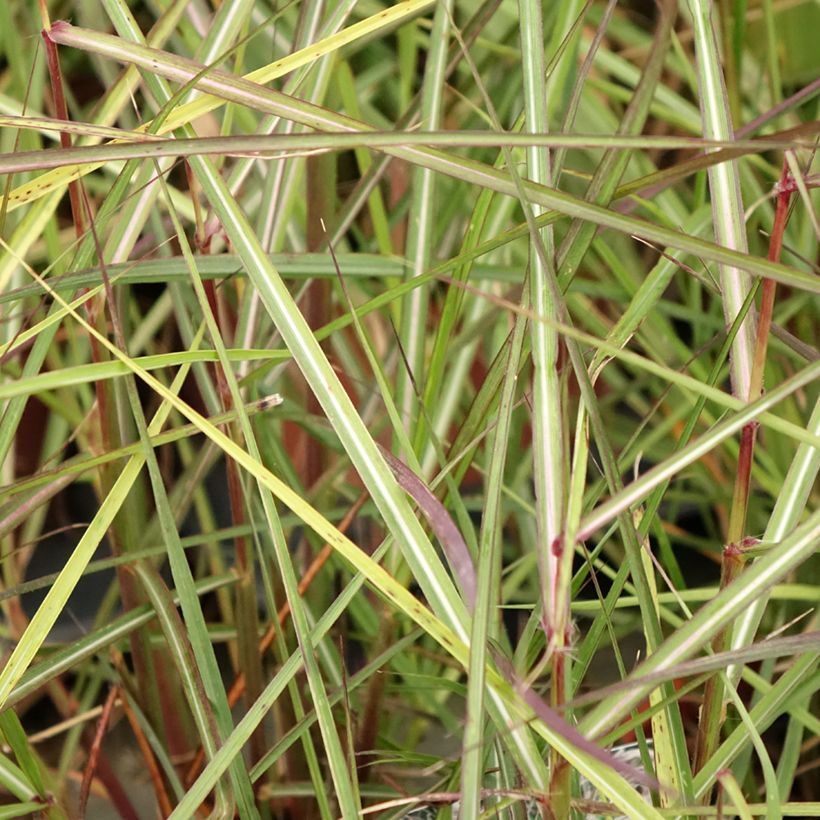

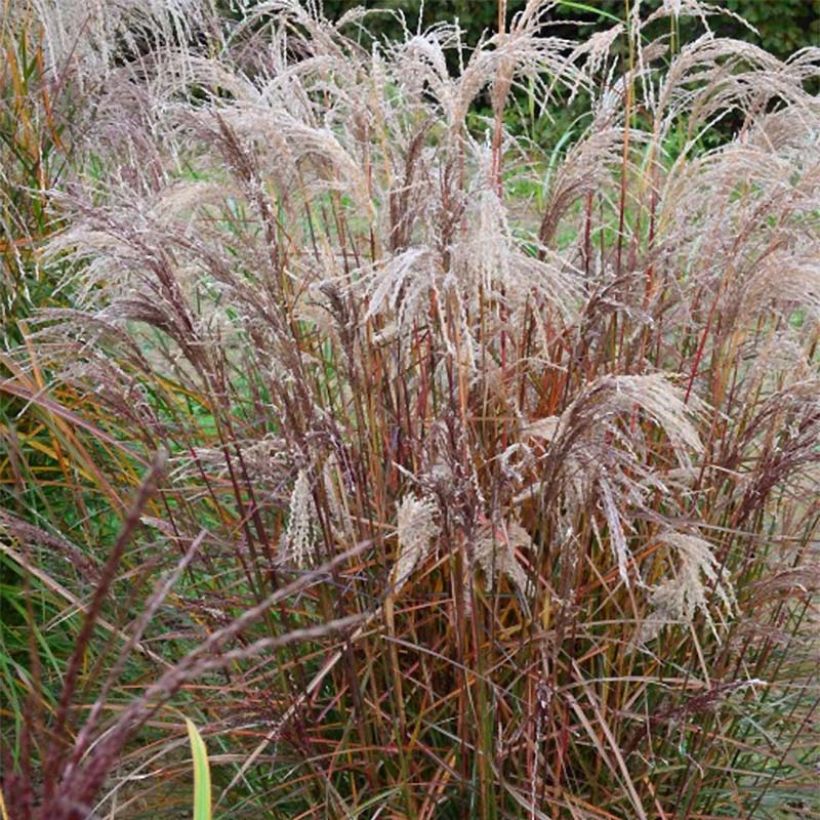

Flowering
Foliage
Plant habit
Botanical data
Miscanthus
sinensis
Aperitiv (Aperitif)
Poaceae
Eulalia, Porcupine Grass, Chinese silver Grass, Maiden Grass, Zebra Grass, Susuki Grass
Cultivar or hybrid
Other Miscanthus
Planting and care
Miscanthus sinensis 'Aperitif' thrives in sunny exposures and healthy, deep, not too rich, well-drained soil that is not too dry in summer. It cannot tolerate stagnant moisture in winter. Soil that is too rich can encourage lush vegetation at the expense of flowers. An addition of compost in spring can be beneficial in very poor soils. Once well established, after 2 or 3 years of cultivation, this plant tolerates moderate drought if planted in deep soil. It can adapt to poor soil, but it will be less imposing and its growth slower. Warm climate grasses such as miscanthus, panicum and pennisetum develop in late spring. They are in bloom after midsummer and are usually cut in late winter. It is therefore preferable to plant them in spring, after the strongest frost has passed.
Miscanthus are good plants for containers. For container planting, choose a large pot (minimum 45L) filled with a fertile, draining and flexible growing medium. A mixture composed of 20% good garden soil, 20% draining elements in a mixture (pumice or gravel or coarse river sand), and 60% potting soil is ideal. Apply well-decomposed compost once or twice a year (end of winter and autumn) or slow-release fertiliser. When it becomes less floriferous, divide the clump and recover the peripheral shoots for replanting.
Planting period
Intended location
Care
-
, onOrder confirmed
Reply from on Promesse de fleurs
Coloured foliage perennials
Haven't found what you were looking for?
Hardiness is the lowest winter temperature a plant can endure without suffering serious damage or even dying. However, hardiness is affected by location (a sheltered area, such as a patio), protection (winter cover) and soil type (hardiness is improved by well-drained soil).

Photo Sharing Terms & Conditions
In order to encourage gardeners to interact and share their experiences, Promesse de fleurs offers various media enabling content to be uploaded onto its Site - in particular via the ‘Photo sharing’ module.
The User agrees to refrain from:
- Posting any content that is illegal, prejudicial, insulting, racist, inciteful to hatred, revisionist, contrary to public decency, that infringes on privacy or on the privacy rights of third parties, in particular the publicity rights of persons and goods, intellectual property rights, or the right to privacy.
- Submitting content on behalf of a third party;
- Impersonate the identity of a third party and/or publish any personal information about a third party;
In general, the User undertakes to refrain from any unethical behaviour.
All Content (in particular text, comments, files, images, photos, videos, creative works, etc.), which may be subject to property or intellectual property rights, image or other private rights, shall remain the property of the User, subject to the limited rights granted by the terms of the licence granted by Promesse de fleurs as stated below. Users are at liberty to publish or not to publish such Content on the Site, notably via the ‘Photo Sharing’ facility, and accept that this Content shall be made public and freely accessible, notably on the Internet.
Users further acknowledge, undertake to have ,and guarantee that they hold all necessary rights and permissions to publish such material on the Site, in particular with regard to the legislation in force pertaining to any privacy, property, intellectual property, image, or contractual rights, or rights of any other nature. By publishing such Content on the Site, Users acknowledge accepting full liability as publishers of the Content within the meaning of the law, and grant Promesse de fleurs, free of charge, an inclusive, worldwide licence for the said Content for the entire duration of its publication, including all reproduction, representation, up/downloading, displaying, performing, transmission, and storage rights.
Users also grant permission for their name to be linked to the Content and accept that this link may not always be made available.
By engaging in posting material, Users consent to their Content becoming automatically accessible on the Internet, in particular on other sites and/or blogs and/or web pages of the Promesse de fleurs site, including in particular social pages and the Promesse de fleurs catalogue.
Users may secure the removal of entrusted content free of charge by issuing a simple request via our contact form.

































